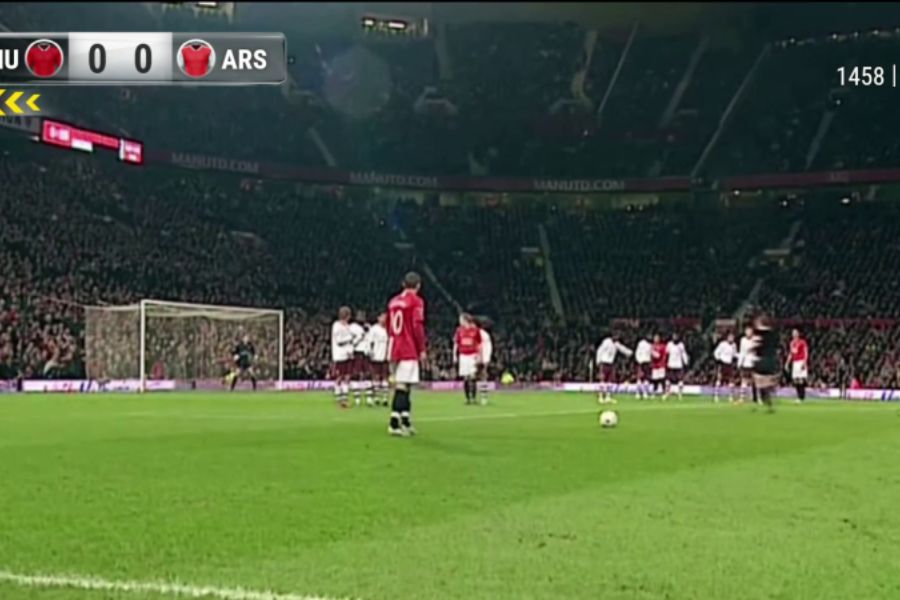Kiron launches virtual football in LatAm and Nigeria

Virtual sports provider Kiron Interactive is launching its virtual football game, GOAL Premier, for audiences in Mexico, Nigeria, and Chile.
The game will debut on online gambling platform Betano, which is operated by online operator Kaizen Gaming across multiple international markets.
According to Kiron, the game will include the LatAm Single and Champions Single formats. The games are short-form football matches, lasting around two minutes and customized for mobile users.
The introduction of GOAL Premier in these countries is a strategic move for Kiron into areas where football is hugely popular and culturally significant.
“We’re excited to kick off this partnership with Kaizen Gaming by launching GOAL Premier in three markets where football has unmatched popularity,” Kiron Interactive CEO Steven Spartinos said in a news release. “Kaizen Gaming has a sharp understanding of their players and a clear focus on delivering high-quality entertainment. With GOAL Premier, they’re bringing their audiences a proven, high-frequency football experience that resonates with how fans follow the game today.”
Based in South Africa, Kiron Interactive was founded in 2001 and originally focused on virtual horse racing games before expanding into other virtual sports and casino gaming products.
Last month, Kaizen Gaming also partnered with icasino games developer Konami Gaming to launch Konami’s portfolio of games in Brazil.
Verticals:
Sectors:
Topics:
Dig Deeper
The Backstory
Why this moment matters for virtual sports
Virtual sports are moving from a niche filler to a front-line product across regulated markets, reshaping how operators keep bettors engaged between live events and during off-peak hours. Over the past year, suppliers and platforms have raced to localize titles, expand distribution and secure lottery channels. That push now spans Latin America, Africa and the United States, setting the stage for the latest development in this fast-evolving category.
Three recent launches underscore the shift. Kiron Interactive introduced its mobile-first virtual football, GOAL Premier, in Mexico, Nigeria and Chile through Kaizen Gaming’s Betano brand, aligning the format with football-first cultures and short, two-minute matches tailored for phones. The debut marks a deeper strategy to plant flags in markets where soccer fandom drives daily engagement, as outlined in Kiron’s rollout with Betano across Mexico, Nigeria and Chile.
Inspired Entertainment has accelerated its own international footprint, pairing with major sportsbooks and platforms to seed localized content. In Brazil, Inspired teamed with BetMGM and Kambi to release a bespoke title designed for the local market, a move detailed in Inspired’s launch of V-Play Football (Brazil) with BetMGM and Kambi. And through a separate agreement, Inspired is supplying its broader virtual catalog to Alternar’s global sportsbook, which recently expanded in Peru and Brazil, per Inspired’s partnership with Alternar.
The category is also testing new channels stateside. In Virginia, the lottery became the first U.S. ilottery to offer virtual sports draw games, integrating football, basketball and horse racing via a three-way collaboration among Aristocrat Interactive, NeoPollard Interactive and Inspired. That move is documented in the Virginia Lottery’s VSports launch.
Localization meets distribution muscle
Virtual sports sell on rhythm and relevance. The cadence is high frequency—rounds every two to three minutes—and the content must mirror the local game. Inspired’s Brazil-specific football title aims squarely at those dynamics. By contrast, Kiron’s LatAm Single and Champions Single formats are tuned to short-form viewing and mobile play, fitting how fans track highlights and social clips. The details are in Kiron’s LatAm and Nigeria rollout with Betano and Inspired’s Brazil launch with BetMGM and Kambi.
Distribution is consolidating around aggregators that can light up new markets quickly. Aristocrat’s Fusion system enabled Virginia’s launch through a single integration that pipes in Inspired’s content, as the Virginia Lottery deal notes. Inspired’s feed into Alternar similarly extends reach across 30-plus sportsbook markets without bespoke builds for each, according to the Alternar agreement. In parallel, content distributors are widening their geographic aperture. Gaming Corps, for example, struck a pact with Oddsworks to bring slots, table and nontraditional games via the BetGuard platform to U.S., Latin American and Canadian operators, following Oddsworks’ tie-up with Caesars on Feb. 27, 2025, per Gaming Corps’ North America and LatAm expansion with Oddsworks.
These pipes matter because virtual sports tend to thrive on ubiquity and frequency. Operators can drop the modules into existing sportsbooks and casinos, schedule events every few minutes and use localized branding to convert casual sports fans into cross-vertical players. The portability across mobile and web adds another layer of scale, particularly in countries where live sports rights are fragmented or expensive to activate in product.
Lotteries push the U.S. frontier
The Virginia Lottery’s move is a bellwether for how virtuals may enter more tightly regulated U.S. channels. Wrapped as lottery draw games with certified random number generators, VSports avoid the compliance complexity of live event wagering while offering sports-flavored entertainment on a fixed schedule. The integration via Aristocrat and NeoPollard gives state lotteries a template to add sports-themed digital content without expanding into full sportsbook operations, as detailed in the Virginia Lottery VSports announcement.
For lotteries, the appeal is dual: attract new demographics who browse sports apps and generate recurring revenue for public programs. Virginia framed the rollout as a way to broaden content while supporting K-12 education funding. That narrative could resonate in other states looking to diversify ilottery catalogs amid uneven online casino legalization and fierce competition for consumer attention.
A regulatory line takes shape
Virtual sports occupy a clearer regulatory lane than event contracts tied to real-world outcomes. The distinction came into sharp focus when Robinhood pulled back a plan to offer Super Bowl wagers through a partnership with Kalshi after the Commodity Futures Trading Commission sought clarity on compliance. The reversal, which affected about 1 percent of users in its pilot, underlined the scrutiny on financialized betting products. The sequence is laid out in Robinhood’s rollback of its Pro Football Championship market.
By contrast, virtual sports are RNG-driven simulations regulated as gaming or lottery products, with outcomes independent of live events. That separation makes them easier to slot into existing regulatory frameworks in many jurisdictions. The Virginia Lottery’s VSports format, Inspired’s deployments through licensed sportsbooks like BetMGM or platforms like Alternar, and Kiron’s partnership with regulated operator Kaizen all reflect that path-of-least-resistance approach. The upshot: suppliers can scale virtuals while policymakers continue debating the boundaries of event-based derivatives and prediction markets.
What’s at stake for operators
For sportsbooks in Brazil, Mexico and across LatAm, virtuals provide always-on engagement that complements live calendars and helps smooth revenue volatility. Inspired’s Brazil-focused football and Kiron’s fast-cycle matches target peak local demand. Deals like Inspired’s tie-up with BetMGM and Kambi in Brazil and Kiron’s Betano launch in Mexico, Nigeria and Chile show operators leaning on localized content to differentiate and extend session length.
Platform partners are jockeying to be the connective tissue. Alternar gains a diversified catalog without heavy lifting by tapping Inspired’s feed, per their agreement. Oddsworks’ BetGuard widens distribution for studios like Gaming Corps that specialize in nontraditional formats and mechanics attractive to sports-first audiences, as in Gaming Corps’ Oddsworks deal. And in the U.S., the Virginia model signals a route for lotteries to add sports-themed content without becoming bookmakers, potentially unlocking a new competitive axis with commercial operators.
The competitive question now is execution. Suppliers must keep content fresh and authentic to local tastes. Operators have to balance promotion without cannibalizing live sports handle. Regulators will watch how virtuals are marketed and whether they draw clear lines from real-world outcomes. But the momentum is evident: with frequent cycles, mobile-first design and turnkey integrations, virtual sports are becoming a strategic fixture, not just a filler.








